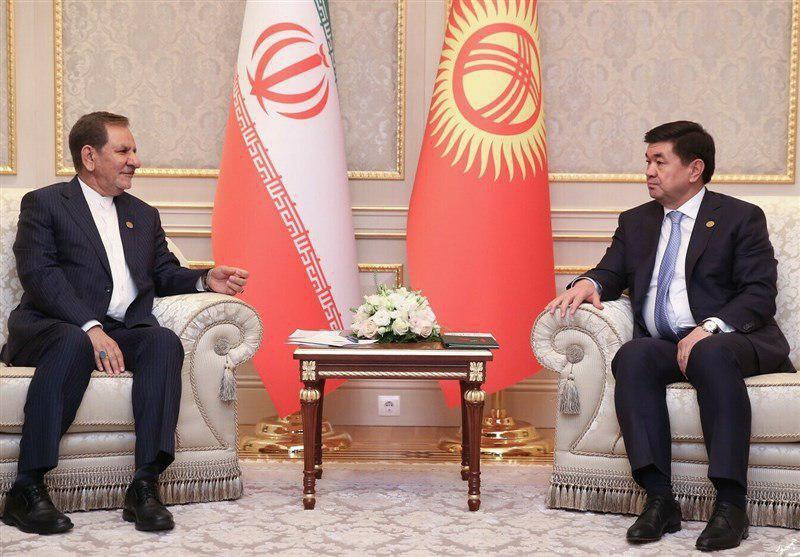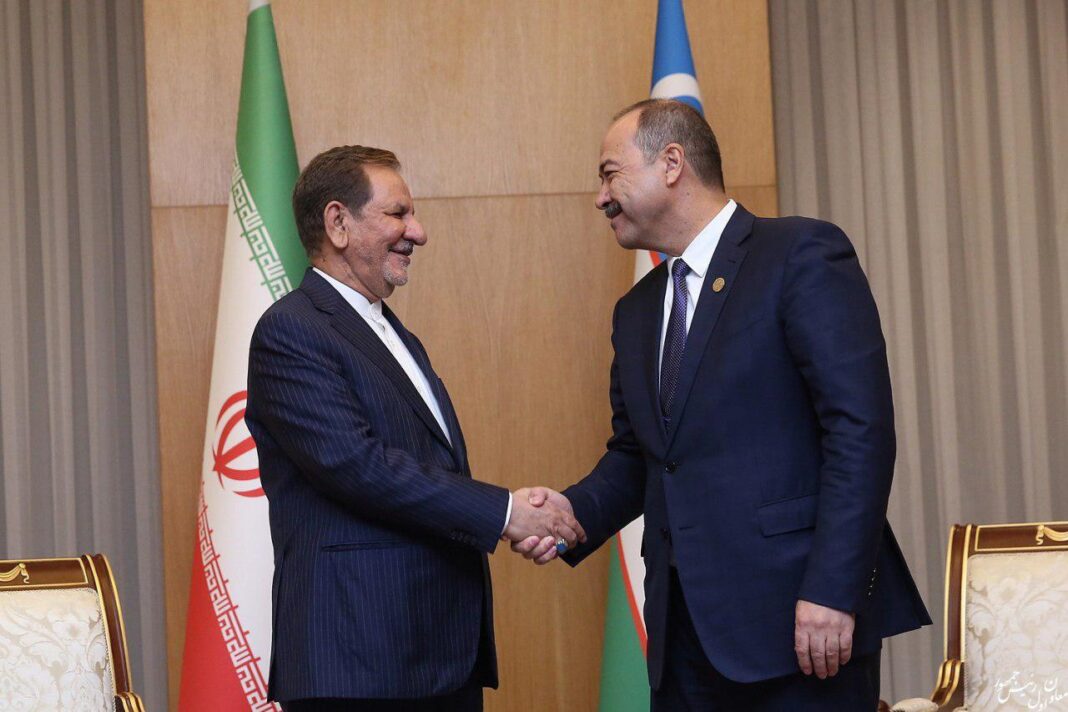Speaking in a Saturday meeting with Uzbek Prime Minister Abdulla Aripov, Jahangiri described transit and transportation as one of the areas of mutual interest, noting that the transportation has a great impact on the cost of goods.
He also announced the readiness of the Islamic Republic of Iran to cooperate with Uzbekistan in the field of transport and transit.
The talks were held on the sidelines of the meeting of the Council of Heads of Government of the Shanghai Cooperation Organisation in the Uzbek capital of Tashkent.
“Iran is interested in importing some of the goods it needs from Uzbekistan. We can also use our national currency for bilateral trade to increase the current trade volume of $300 million,” added Jahangiri.
He referred to the joint commission on cooperation between the two countries, which will hold a meeting in Tashkent in December, expressing hope that all the issues of mutual interest and areas of cooperation will be discussed to remove the barriers of expanding trade and economic ties.
“If visa issuance is facilitated for nationals of the two countries, the cross-border trade between the two states will be boosted, and tourists from Iran can visit Uzbekistan’s historic and ancient sites.”
The first vice president also added that the expansion of banking cooperation is another prerequisite for increasing the volume of trade saying “by removing obstacles and moves such as establishing direct flights between the two countries, the level of economic ties can be increased.”
For his part, the Uzbek PM expressed interest in using Iran’s transit routes saying that Uzbekistan is interested in Iran’s transit corridors to export goods to different parts of the world.
Abdulla Aripov stated that more than 1,000 Iranian companies from state and private sectors are working in Uzbekistan underlining that Tashkent welcomes the presence and activity of Iranian companies.

He noted the Iran-Kyrgyzstan Joint Commission should try to remove hurdles in the way.
“I want the Iranian minister of roads and urban development, who is in charge of the joint commission of the two countries, to tap into all potential to improve relations,” he said.
Jahangiri noted that the economies of the two countries can complement one another.
“The conclusion of the recent agreement between Iran and the Eurasian Economic Union is a good basis for the expansion of relations with this union,” he noted.
The vice president urged both sides to work together further expand banking and tourism relations as well as bonds between people.
“Iran is ready to help boost relations between the two countries by easing the process of issuing visas,” he said.
He further Tehran is currently working to settle problems pertaining to direct flights between Iran and Kyrgyzstan.
The Kyrgyz premier, in turn, touched upon the importance of Iran in his country’s foreign policy.
He said mutual trade currently hovers around $20 million, which is not satisfactory, adding it should rise, especially in the oil and gas sector.
